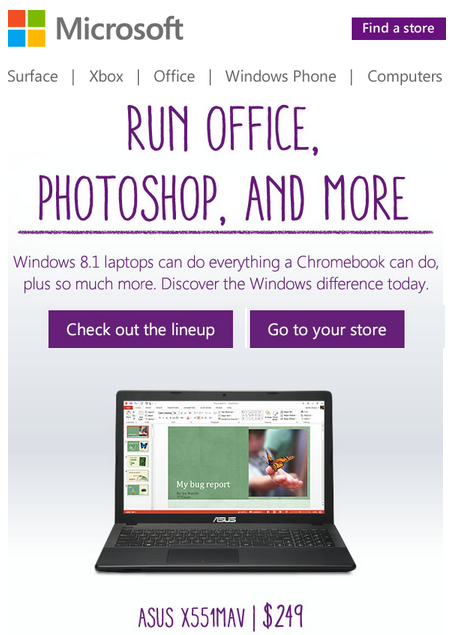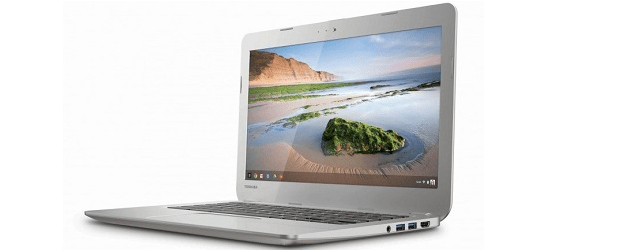When it comes to personal computer market share, the dominance of Microsoft’s Windows operating system (OS) is legendary and unquestioned. There are signs, though, that it’s beginning to feel some Chromebook pressure.
Low-cost laptops running Google’s Chrome OS have been making inroads lately, particularly in the education market where, without having to buy an expensive Windows license and with its integrated management tools, the Chromebook is a good fit for budget-conscious school boards. According to IDC research, a Chromebook costs the K-12 market 69 per cent less labour to deploy and 92 per cent less labour to support than traditional PCs, with significantly lower total cost of ownership.
In what could be seen as a somewhat defensive move by the software giant, Microsoft recently targeted Chromebooks with an e-blast to retail customers, touting an Asus laptop running Windows 8.1 as a more feature-rich option than the Chromebook.

While he’s surprised Microsoft would make such a pitch to retail customers, he can understand why they would said Tim Brunt, program manager for personal computing with IDC Canada. In the first quarter, year over year growth for Chromebook shipments was 1130 per cent – albeit, at still relatively modest unit volumes. Chromebooks are expected to account for eight per cent of mobile shipments by the first quarter of 2015.
According to IDC numbers, 95 per cent of school boards in Alberta are investigating or implementing Chromebooks and, by 2020, IDC estimates some 840,000 Chromebooks will ship to the junior kindergarten through grade three space across Canada by 2020.
“It’s not huge yet, but the opportunity is certainly there for a Chromebook,” said Brunt. “Predominately right now it’s in education and consumer, but a big surprise is that it’s breaking into larger commercial enterprises very quickly.”
Brunt said he’s heard that at least one Canadian bank has halted a roll-out of iPads to evaluate going with Chromebooks as an alternative. The same central management tools that appeal to school board administrators are also catching the eyes of corporate IT managers, he said. So tablet market share may be more at risk than PCs.
So the Chromebook threat may be as much or more to tablets than to laptops. And it’s something Microsoft may be preparing to address with a rumoured new product, said Brunt.
“I’ve heard “cloud book” terminology referred to by a number of people over the last few months, which gives me the idea that Microsoft might have something they’re playing with,” said Brunt.






What IDC predicts what will happen in 6 years is hogwash. Most of these so-called “research” companies can’t figure out what will be happening next year. Remember the Netbook. Some of these companies didn’t expect the iPad and their predictions wet out the window.
As far as the Chromebook goes, it is a paperweight without Internet/Intranet access. Useful to surf, Email and social media. Not much after that.
At least with a cheap Windows computer, you are familiar with it.
Last I checked, Chromebook market share is still dismal – something like 0.1%.
How many homes actually own Photoshop and Office legally?